Q&A with Loungers’ Alex Reilley
Over the last decade, the exponential growth of the Loungers group has been one of the more notable brand success stories on the British high street, closing in on 250 locations. How? Place North spoke to co-founder and executive chairman Alex Reilley.
UK hospitality hasn’t been an easy market to operate in over the last few years. Covid lockdowns, inflation, the cost of living crisis: all have made it harder to survive and thrive.
And yet Loungers is doing just that. The firm grew steadily at first, opening its 100th site 15 years after its maiden 2002 venture, but just five years later, in 2022, it opened its 200th.
All-day hospitality is the key. There’s a fair chance that there’s a Lounge venue near you. Typically, it will have a first name ending in an ‘o’ – Ponto Lounge in Hull, Unico Lounge in Wilmslow, Martino Lounge in Morpeth. You get the picture.
This venue will have some distinctive décor. It will be accessible. It will most likely be open from 9am to 11pm, and it is this reliability, offering a blend of coffee shop, community neighbourhood café, and bar, that has underpinned its growth. This is the UK’s only all-day hospitality brand of scale that has is growing and outperforming the sector.
Along with 200-plus Lounges, the group now includes 36 Cosy Club venues – “relaxed dining and drinking with a touch of timeless glamour,” mostly found in towns and cities with a buzzy visitor economy – and now a third brand, an attempt to reimagine UK roadside dining called Brightside.
Loungers timeline:
- August 2002 – Three friends – Alex Reilley, Jake Bishop and Dave Reid – open the first Lounge venue, in Bedminster, Bristol
- July 2007 – First Lounge outside Bristol opens
- April 2012 – Piper Private Equity takes a minority stake in the business
- August 2012 – First Cosy Club opens
- December 2016 – Lion Capital acquires a majority stake in a £137m deal, with Piper exiting. Reilley becomes executive chairman.
- March 2017 – Group opens its 100th site
- August 2017 – Group achieves £100m in annual sales
- April 2019 – Group floats on the Alternative Investment Market, attracting and retaining a string of blue-chip investors. 150th site opens
- July 2022 – 200th site, Cosy Club Chester, opens. Group reports record revenue of £237m
- September 2023 – 200th Lounge venue opens, Verdetto Lounge in Birmingham
Place North met recently with executive chairman and co-founder Alex Reilley – in a Lounge venue, naturally. We wanted to know how Loungers is making a fist of it as other brands retreat, how the group sees the different parts of the North as playing a part in its future as the expansion story continues.
You opened in Hexham in October, converting a former Argos store in the town centre. How’s business so far?
The North East’s a new area for us really. We like to push boundaries back from where we have a presence, rather than just charging off to new places.
Muro Lounge opened in October: we’ve been amazed, and we think there’s so much opportunity for us there in suburbs of Newcastle and Northumbrian towns in particular. Newcastle itself feels like a no-brainer.
One of our acquisitions managers is from Hexham, and was really pushing the team to have a look, and when the rest of us saw it, it felt right. Hexham’s a great town, there aren’t many vacant units. We’re now also open in Morpeth (in a former Laura Ashley store) and have the Coltello Lounge in Cramlington.
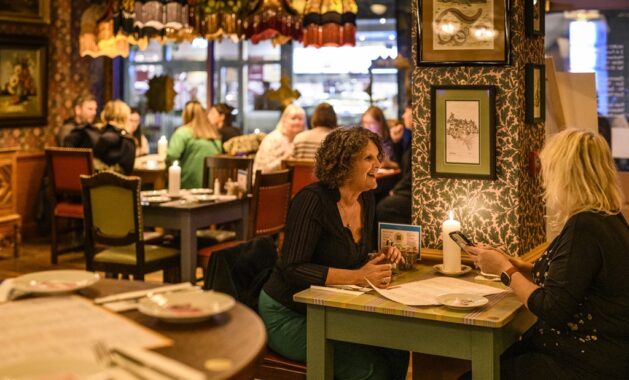
Muro Lounge saw an Argos store completely reinvented. Credit: Loungers
What are the key issues for you when it comes to site identification?
It can take years to get from spotting a site to actually opening, and that can be down to transactional issues, planning, you name it. What I think we generally do well is not snatching at second best. Sometimes it’s not obvious when a site will work well, but sometimes it is.
Sometimes, we’ll have a target town, and a unit will be available, and we’ll know that it’s not quite right. We don’t have to snatch at those sites, because we’ve got plenty of projects to pursue elsewhere, and we can revisit it later, particularly when we think another, more suitable opportunity will come up.
Banks make really good spaces for us, such as the Navio Lounge in Nantwich. There’s a solidity to them, but on the other side of it they do come with costs associated – dealing with strongrooms and so on.
How do you handle the nuts and bolts of delivery on the property side of things?
The property side is always busy. We have a head of acquisitions and two senior acquisitions managers, along with a junior acquisitions manager, and an estates manager. There are five separate build teams within our in-house design & build department.
We took design and build in-house in 2009, following the credit crunch, having seen it as an opportunity to save on fit-out contractors. We liked the model going forward, it gives us the ability to work at the speed we require.
Expanding to the North East has meant we’ve called on local trades more than usual to support the Loungers build teams as they fit new venues out. Typically, a Loungers build programme is seven weeks – it’s quite an aggressive programme, and we’re constantly learning and improving.
How are your North West locations performing?
Burnley is now open and trading well, which obviously we’re pleased to see, and shows we were right in believing that the customer base we require was there. We spend a lot of time getting to understand places and demographics. There are some places people think that might be ideal for a Lounge that aren’t, and it also works the other way around. The quality of information available now is so good we can make informed decisions.
We’re now on site in Rochdale, which three or four years ago was probably not somewhere we’d have looked, because there’s only so much we can do. But it’s such a good quality scheme, and from what we’re doing in Bury, Burnley and Oldham, we can see the customer base is there.
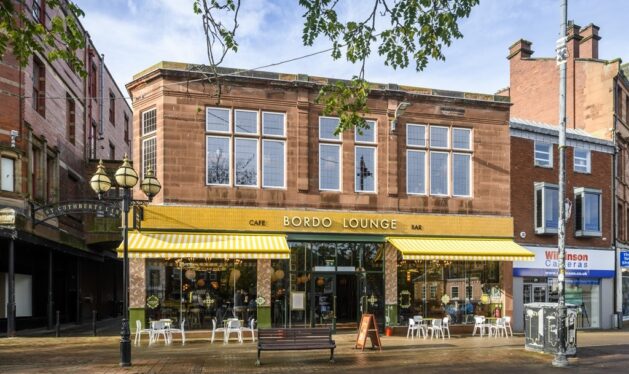
Carlisle has been a major success for the business. Credit: Loungers
Right now, we’re looking at a few opportunities in Merseyside, and we’ve opened now in Lancaster, Kendal and Carlisle – which along with Llandudno has been one of our most successful openings ever.
Carlisle is one place in particular that really struck me, an incredible city. There’s still a lot of opportunity for us in the North West, I could see us in maybe half a dozen more locations in the next 12 to 18 months.
You mentioned data – is there anything in particular you lean on?
Among the products used is GeoBlink which is a location management platform offering deep dive analytics on footfall and other key information. Among the other tools we use is information showing how localised a customer base is – the least localised venue we have nationwide is Newquay, due to the large number of tourists, and the most localised is Oldham.
After opening in the North West, you pushed on to Yorkshire, with locations including Barnlsey, Ripon, Northallerton, Selby, Scarborough, Stocksbridge and Hull. How’s that going?
We’ve been established in the North Werst for a while now, but east of the Pennines has been a more recent thing for us. There is so much to go at, considering we don’t have a Lounge in either Leeds city centre or Sheffield at the moment – although we do have Cosy Club in Leeds.
I would happily open a Lounge in York city centre tomorrow, but getting the right site is the key.
Two of our Yorkshire Lounges, along with two in the East Midlands, have been a bit different in being out of town locations, Bianco Lounge at White Rose and Caballero Lounge at The Springs at Thorpe Park. Again, it’s something different but is working well.
Places like Beverley would be ideal for either a Lounge or Cosy Club – we do often get faced with a positive conundrum like that.
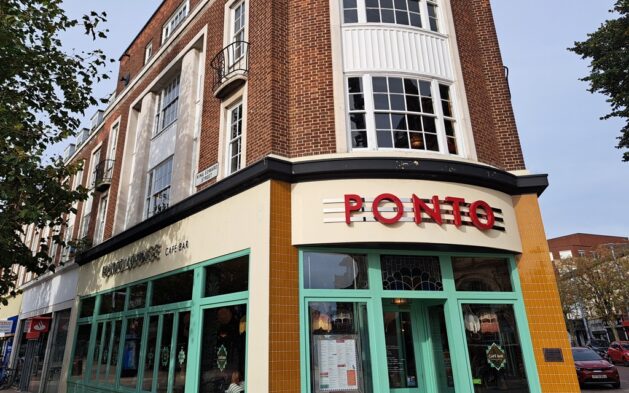
The Hull venue is called Ponto. Credit: Place North
Your move into roadside dining through Brightside is an intriguing one: it’s a concept the UK has not seen much of since Little Chef’s demise. Why take it on, and how do you plan to grow it?
When you think of roadside dining in the UK, you think of Little Chef, and it was a huge success for a long time, and it’s something so many of us have fond memories of – but in the end it declined because they stopped investing and innovating, and you can’t do that.
That really left a void, in our view. Our first three sites are all in the South West, acquired through a single deal, and now we have a few sites in the pipeline, which are maybe 10 months to a year away. These are at Thetford, Rutland, and on the A55 in North Wales. The offer is similar to a Lounge, with subtle differences.
Where Lounge menus are the same all day, Brightside has a specific breakfast menu, and then changes at noon – although five breakfast dishes remain available. There are burgers, and “nation’s favourite” classics, and the difference to Lounges is there are pizzas.
We’ve taken a bit of a punt, but it’s a challenge. People have to get out of the car and come and sit down to eat, which is something the UK ‘s moved away from. It’s a big brand-building exercise for us, but we’re excited, we love the process, and testing ourselves by thinking about Brightside helps the wider business too. It’s an exciting journey to be on.
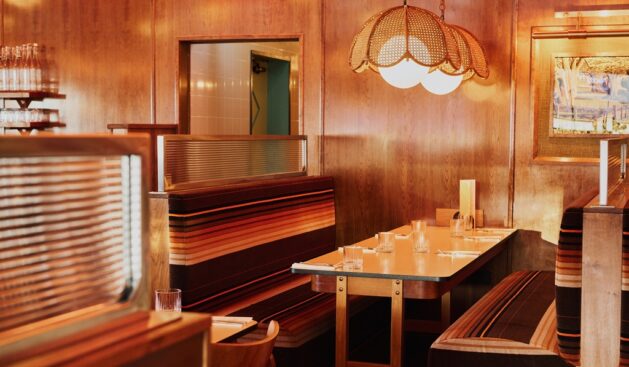
Can Brightside replace Little Chef in UK diners’ hearts? Credit: Loungers
Times are, as we’re often told, tough, especially on the high street. What are the main headwinds for your business?
One benefit of being a growing business is that we’re able to negotiate more keenly with suppliers, because they can see the growth journey and can see the opportunities for them. Food inflation in general has not been as volatile for a while now as it was in 2022.
Cost inflation for building supplies obviously remains a big challenge: there are stoppages in the supply chain like shipping container availability. Labour costs are also challenging.
We’ve been quite well insulated against the energy costs crisis through hedges we took out, and we’re already working on ensuring that we can keep that up. We’ve been fortunate, and it put us in a position others found themselves in where they had no option but to pass on some of those additional costs to customers.
Lounges are described as combining the best of a coffee shop, the British pub, and relaxed dining – so who ARE your competitors?
There’s nobody that we pay special interest to, really. We like competition, we’re happy to go into well established areas, and equally we’re happy to trailblaze. As a team, we like to get our game face on and be competitive.
When, say a coffee shop opens next door to a Lounge, we notice it in the figures at first, but it rebalances fairly soon. It’s interesting to see patterns, but in general we see the areas we trade in being generally busy as a good thing, because we’re there for people all day. Some of our locations have a daytime bias, others do better in the evenings. The adaptability is the joy of the model.
Community’s a big part of that. We don’t dictate from the top down, because to be effective engagement is so much better when its organic and local. Our LoungeAid annual two-month fundraising initiative is a big thing for us. It might be that the chosen charity of a Lounge is something to which one of the staff there has a connection, or a regular customer. All we do as a group is highlight best practice and encourage it.
There are six regions in the Lounge operating structure, and each will have a regional community co-ordinator. People give over spaces to community uses – I’ve walked in to venues and there have been painting classes on, or a group dealing with loneliness, and being there for all parts of a local community is what we want to see.


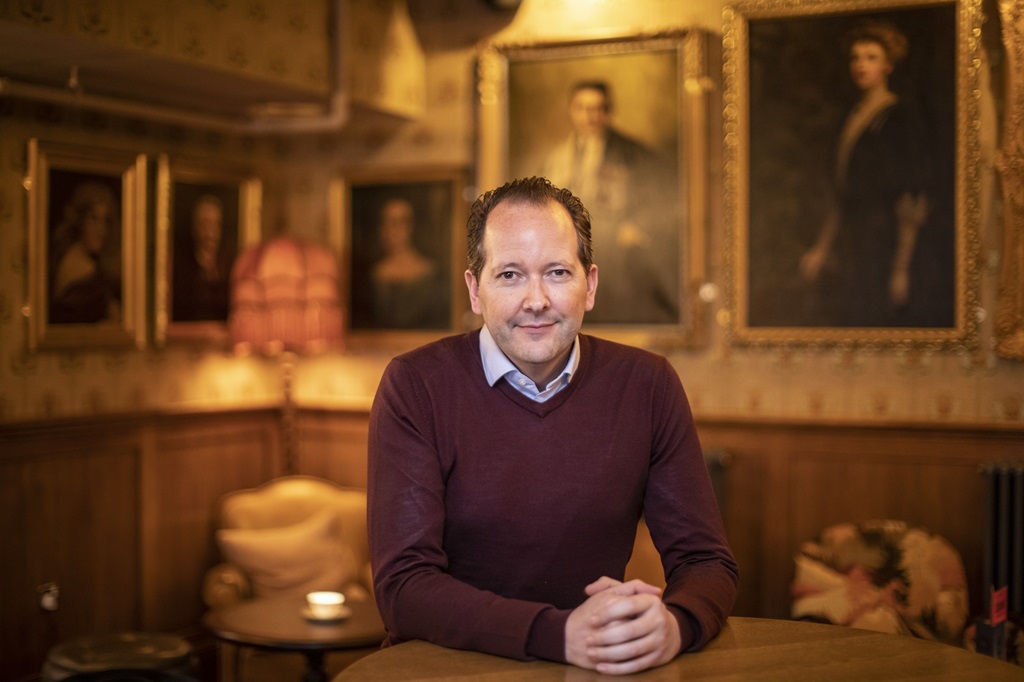


In a positive way, I would describe the Lounge I’ve been to as an upmarket Wetherspoons – comforting food served all day, a good range of drinks, repurposing town centre spaces etc. It’s a more relaxing place to go than mid-market chains like Pizza Express.
By Southerner
In Altrincham Loungers is the busiest place since it opened, it offers consistent food with good service from well trained staff in a comfortable setting. The independents really struggle with that, it’s the same in Manchester, you know you’ll get a better product in a chain.
By Gilly
I like the Calico Lounge in Chorley, as a family we enjoy a relaxing breakfast there.
By Bob